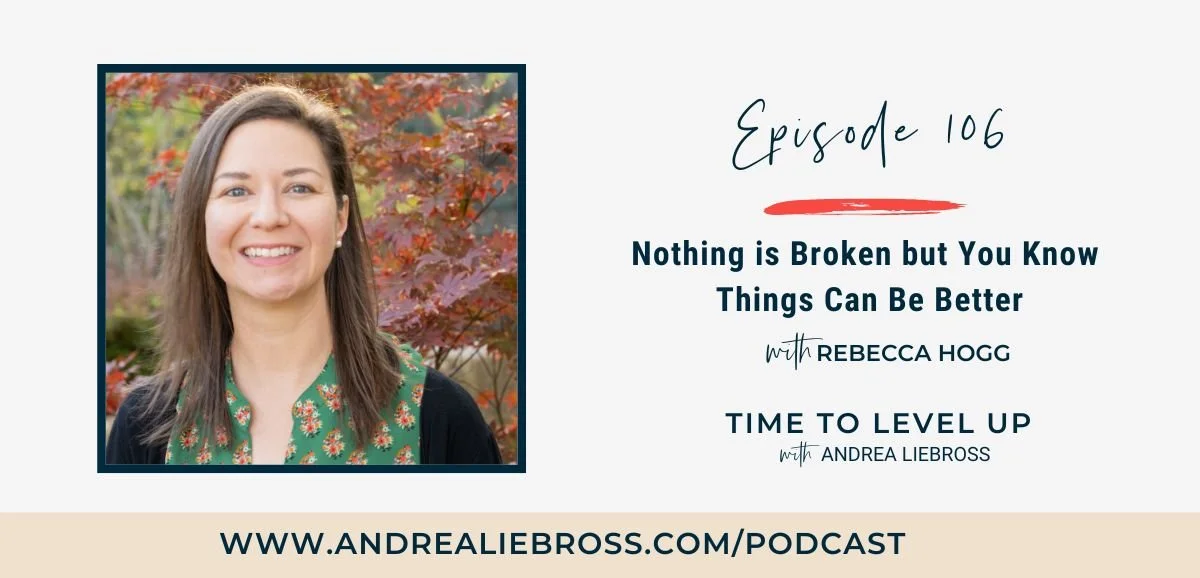106: Rebecca Hogg on Wanting to Be Better Even When Nothing is Wrong
Rebecca Hogg knew nothing was broken, but she felt things could be way better. When she and I started working together in early 2022, she wanted to excel in all areas of her life. However, she feared that she'd have to give up something in order to get something else.
Not only did Rebecca discover the opposite, but she ended up changing herself, her life, and her business in the process. In this episode, she and I discuss how she’s been able to put all of the puzzle pieces together and reveal the two main tools she uses that can help you do the same!
In Today’s Episode We Discuss:
3:59 - A little of Rebecca’s professional background and how she discovered me
7:25 - Where Rebecca was personally and professionally when we first started working together
10:33 - What Rebecca loves about the Full Focus Planner and how she uses it in her life
14:04 - What Rebecca finds most valuable YNAB and how she has integrated it into her world
20:17 - How budgeting has helped Rebecca in her business
22:48 - Changes that Rebecca has undergone since we started working together
28:16 - A useful visual for shifting from a negative to a positive belief
32:11 - How Rebecca’s new way of thinking feels now compared to nine months ago
35:20 - How my coaching has benefitted Rebecca professionally and personally
Rebecca D. Hogg is a Licensed Professional Counselor able to see clients in Texas, Florida, Arizona, and other states and countries as permitted.
She is a Registered Play Therapist. Also, she is an EMDR Approved Consultant trained in Internal Family Systems (IFS), and Somatic Experiencing (SE). Rebecca creates personalized sessions that are holistic with a focus on overall wellness.
She has a growing practice that includes therapy and coaching.
How We Help & Who We Are: Canvas Counseling & Wellness PLLC
Mentioned In Nothing is Broken But You Know Things Can Be Better with Rebecca Hogg
You Need a Budget (YNAB) System
Other Episodes You'll Enjoy:
Episode 88: How the Full Focus Planner System Will Change the Way You Live and Work
Episode 68: Budgeting Rules to Confidently Handle Wealth Without the Stress
Episode 67: Guilt-Free Spending on Yourself
[fusebox_transcript]

Take The Quiz
Are you overwhelmed with business and life and think there is never enough time in the day? Are you tired of being reactive vs proactive in your business?
Learn how to show up as your best self in business.

